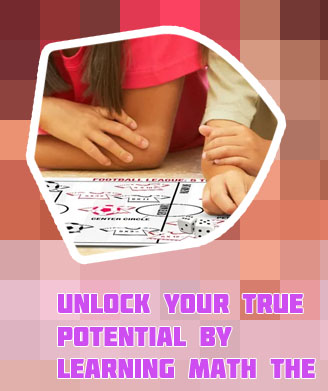


Engaging children in math learning can be a challenging task, but incorporating fun and interactive math games can make the process more enjoyable and effective. In this list, we have curated four articles that provide valuable insights and strategies for using math learning games to enhance children's mathematical skills and understanding. From digital math games to hands-on activities, these resources offer a variety of ideas to make learning math a fun and engaging experience for students.

Math can be a challenging subject for many elementary students, but it doesn't have to be boring. By incorporating fun math games into their learning routine, students can improve their math skills while having a great time. Here are some exciting math games that are perfect for elementary students in India.
Math Bingo: This classic game is a fun way for students to practice their addition, subtraction, multiplication, and division skills. By playing Math Bingo, students can improve their mental math abilities while competing with their peers.
Math Jeopardy: Similar to the popular TV game show, Math Jeopardy challenges students to answer math questions in various categories. This game encourages critical thinking and problem-solving skills, making it an excellent choice for elementary students.
Math Scavenger Hunt: This game involves students solving math problems to find hidden clues around the classroom or school. Math Scavenger Hunt not only reinforces math concepts but also promotes teamwork and collaboration among students.
Math Puzzles: Math puzzles are a great way to engage students' critical thinking skills. By solving puzzles, students can enhance their problem-solving abilities and develop a deeper understanding of mathematical concepts.
Math Board Games: There are many math board games available that make learning math fun and interactive for
In today's digital age, incorporating math learning apps into the classroom can greatly enhance the learning experience for students in India. These apps offer a wide range of benefits that traditional teaching methods may not provide.
Interactive Learning: Math learning apps offer interactive features such as games, quizzes, and simulations that make learning fun and engaging for students. This can help improve their understanding and retention of mathematical concepts.
Personalized Learning: Many math learning apps use adaptive technology to personalize the learning experience for each student. This means that students can learn at their own pace and focus on areas where they may need more help.
Instant Feedback: Math learning apps provide instant feedback on students' answers, allowing them to learn from their mistakes and make corrections in real-time. This can help students build confidence in their math skills and develop a growth mindset.
Accessibility: Math learning apps are accessible anytime, anywhere, as long as students have a device and an internet connection. This can be especially beneficial for students in India, where access to quality education resources may be limited in some areas.
Engaging Visuals: Many math learning apps use engaging visuals, animations, and videos to explain complex mathematical concepts in a clear and easy-to-understand way. This can help make
Board games have long been known to have educational benefits for children, and one area where they can particularly shine is in improving math skills. Games such as Monopoly, Settlers of Catan, and Sudoku can help children develop essential mathematical concepts such as counting, addition, subtraction, multiplication, and problem-solving skills.
Playing board games can make learning math fun and engaging for children, as they are able to practice their skills in a relaxed and enjoyable environment. By incorporating numbers, shapes, and patterns into gameplay, children can strengthen their understanding of mathematical concepts without even realizing they are learning.
In India, parents and educators are beginning to recognize the value of using board games as a tool to enhance children's math skills. For example, Mr. Ravi Sharma, a resident of Mumbai, has seen significant improvements in his daughter's math abilities after regularly playing math-focused board games with her. "I have noticed that my daughter has become more confident in her math skills and is able to solve problems more quickly since we started playing these games together," he says.
Overall, board games can be a valuable resource for parents and educators looking to help children build a strong foundation in math. By incorporating games into learning activities, children can develop essential math skills while having fun at the same time
As an expert in education in India, I have found that incorporating math games into lesson plans can greatly benefit students in understanding and retaining mathematical concepts. By making learning fun and interactive, students are more likely to stay engaged and develop a positive attitude towards math.
One creative way to incorporate math games into your lesson plans is through the use of educational apps. There are numerous apps available that offer interactive games and activities to help students practice their math skills in a fun and engaging way. These apps can be used both in the classroom and at home, allowing students to continue their learning outside of school hours.
Another effective method is to introduce board games that involve math concepts. Games like Monopoly, Scrabble, and Settlers of Catan require players to use math skills such as addition, subtraction, and multiplication in order to play and strategize effectively. By integrating these games into lesson plans, students can practice their math skills in a social and entertaining setting.
Feedback from residents in India, such as Mr. Rajesh Kumar from Mumbai, has shown that incorporating math games into lesson plans has had a positive impact on students' engagement and understanding of mathematical concepts. Mr. Kumar mentioned that his daughter's math skills have improved significantly since her school started using math games in their curriculum. He